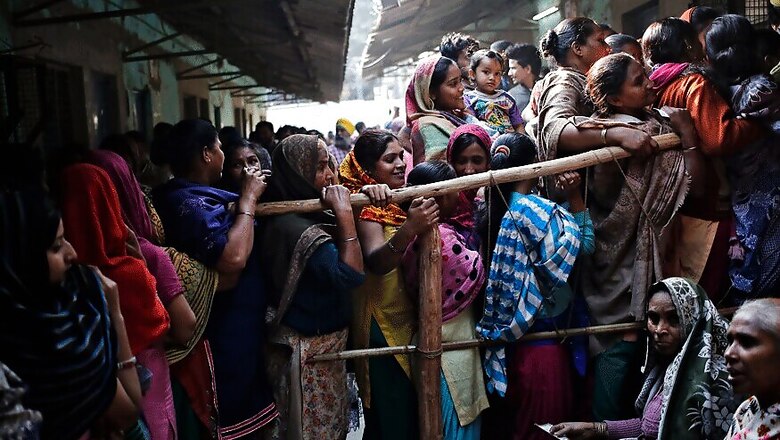
views
Lucknow: In a state so deeply divided on caste and religious lines, it might be music to ears to know that there can well be a significant gender perspective to polls.
Some studies done by social scientists on behalf of the Election Commission indicate that for more than 60 percent women electorate issues like law and order and basic civic amenities, price rise are a priority and only 20 percent of them voted out of political leanings.
The interesting and rather encouraging findings have come up in a study done by a team of social scientists headed by Professor BK Bajpayee of the Lucknow-based Giri Institute of Development Studies. The scholars of the institute have been researching on the voting choices and preferences of the voters, especially women, over subsequent elections.
The most recent such study was titled 'Baseline study of knowledge, attitude, behaviour and practices of Voter in Uttar Pradesh' was conducted across all 7 phases of 2014 general elections. Two districts were picked from each phase and 12,600 women were questioned.
Sharing the details, Prof Bajpayee said: "Since 2007 Assembly elections, there has been a gradual increase in awareness levels for women voter. They are becoming more and more assertive and gradually walking out of shadow of the male family head, as far as voting choice is concerned."
According to the 2014 survey, for around 63 percent of women in the state, law and order and governance was an agenda. The growing gender assertion can be judged from the fact that 65 percent of those women who were questioned said they voted because they felt their vote can bring about a change. Twenty percent of them voted out of pure political preference and only six percent said they voted according to choice of their family head. There were six percent of such women who didn't cast their vote because there was no candidate of their choice.
Findings also indicate that while consciousness about the electoral choices and decisions has been higher among educated women, the trend of electoral awareness is also increasing among women of economically and socially deprived strata.
Based on these trends, it is a valid question to ask if women electorate will be a deciding factor in the 2017 UP Assembly elections. Can gender perspective in some way threaten the caste and communal narrative?
Professor Roop Rekha Verma, a prominent Women rights activist and Former Vice Chancellor of Lucknow University, said, 'Growing gender consciousness among women has forced political parties to make promises for women and girls in their election manifesto, but that is more of lip service. Women as a strong collective political force are still a work in progress."
On question of demonetisation, Professor Verma said that 'there is no doubt that demonetisation has been harshest for women, many of them stripped of their minuscule savings. But lack of strong women movement and political awareness gives both the BJP and the Opposition an equal chance to lure them over the issue'.














Comments
0 comment